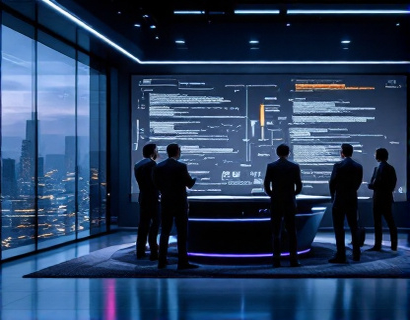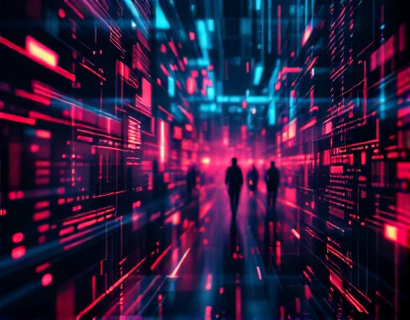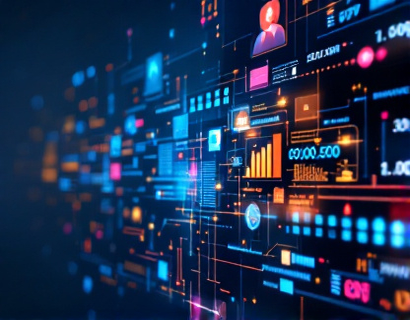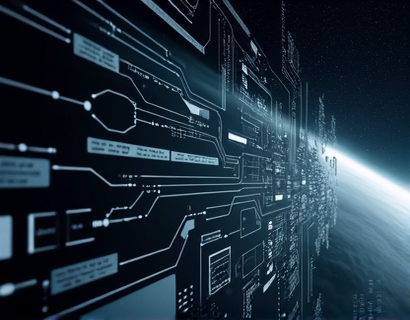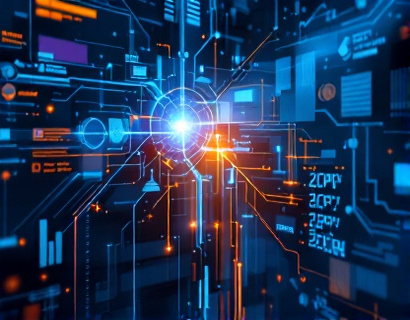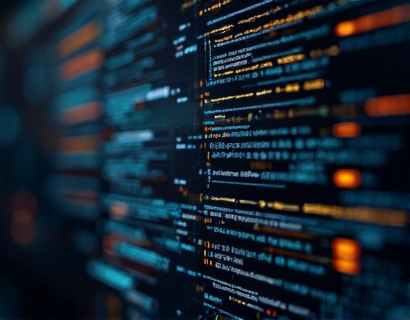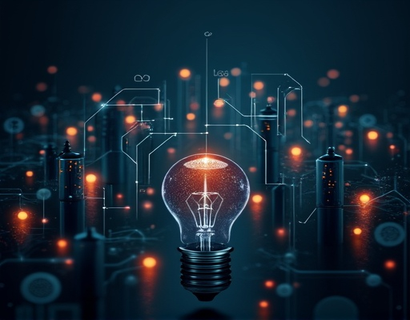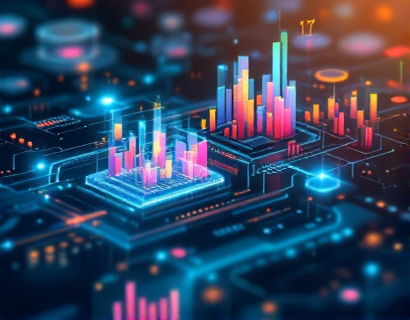Crypto and AI Synergy: Transforming Ucosystem Applications for the Next Generation
The intersection of cryptocurrency and artificial intelligence (AI) is giving rise to a new era of technological advancements, fundamentally altering the landscape of digital interactions and applications. This synergy is not just a convergence of two powerful fields but a transformative force that is redefining how we perceive and engage with technology. As we delve into this topic, it's essential to understand the foundational elements that make this synergy possible and the profound impact it has on various sectors.
The cryptocurrency space has evolved significantly since the inception of Bitcoin in 2009. Initially seen as a digital currency, it has expanded to encompass a broader ecosystem that includes decentralized finance (DeFi), non-fungible tokens (NFTs), and smart contracts. Each of these components plays a crucial role in creating a more transparent, secure, and efficient financial system. On the other hand, AI has progressed from a niche field of computer science to a ubiquitous technology influencing everything from healthcare to entertainment. The integration of AI into the crypto space is opening new avenues for innovation and enhancing the capabilities of existing applications.
Foundational Technologies: Blockchain and Machine Learning
At the core of this synergy are blockchain technology and machine learning, the primary components of AI. Blockchain provides a decentralized and immutable ledger that ensures transparency and security in transactions. Machine learning, a subset of AI, enables systems to learn from data, identify patterns, and make decisions with minimal human intervention. When combined, these technologies create a powerful framework for developing applications that are not only secure and transparent but also intelligent and adaptive.
One of the key advantages of using blockchain in AI applications is the ability to manage and secure large datasets. Traditional AI systems rely on centralized data repositories, which are vulnerable to breaches and manipulation. Blockchain-based solutions offer a decentralized approach to data management, ensuring that data integrity is maintained and that users have control over their information. This is particularly important in the crypto space, where trust and security are paramount.
Enhanced Security and Trust
The integration of AI and blockchain significantly enhances the security and trustworthiness of digital applications. AI algorithms can be employed to detect and prevent fraudulent activities, such as phishing attacks and unauthorized access. By analyzing patterns and anomalies in real-time, these systems can respond swiftly to potential threats, providing a robust defense mechanism. Additionally, smart contracts on the blockchain can automate and enforce agreements, reducing the need for intermediaries and minimizing the risk of human error or mal intent.
For instance, in the realm of DeFi, AI-driven security protocols can monitor transactions and identify suspicious behavior, ensuring that the system remains resilient against attacks. This combination not only protects users' assets but also builds confidence in the decentralized ecosystem, encouraging more individuals to adopt and engage with these innovative applications.
Optimized Performance and Efficiency
AI technologies can also optimize the performance of blockchain-based applications. Machine learning models can be used to predict network congestion, optimize resource allocation, and improve transaction processing speeds. By analyzing historical data and current trends, these models can make informed decisions that enhance the overall efficiency of the system. This is particularly beneficial in high-demand scenarios, such as during peak trading hours or when processing a large number of smart contract executions.
Moreover, AI can help in the development of more energy-efficient blockchain networks. Traditional proof-of-work (PoW) consensus mechanisms are known for their high energy consumption. AI algorithms can be employed to design and implement more efficient consensus algorithms, such as proof-of-stake (PoS) or other innovative approaches, reducing the environmental impact of blockchain networks while maintaining security and decentralization.
Personalized User Experiences
One of the most exciting aspects of the crypto and AI synergy is the ability to create personalized user experiences. AI-driven recommendation systems can analyze user behavior and preferences to suggest relevant crypto assets, DeFi protocols, and other financial instruments. This level of personalization not only enhances user engagement but also helps individuals make more informed decisions in the complex crypto market.
For example, an AI-powered crypto advisory tool can monitor a user's portfolio, market trends, and risk tolerance to provide tailored investment recommendations. This not only simplifies the investment process but also empowers users to take control of their financial futures. Additionally, chatbots and virtual assistants powered by AI can offer 24/7 support, answering queries and guiding users through various crypto-related tasks.
Innovative Applications in Various Sectors
The synergy between crypto and AI is not limited to financial applications. This powerful combination is transforming industries across the board, from healthcare to supply chain management. In healthcare, AI-driven analytics can process vast amounts of medical data to identify patterns and predict outcomes, while blockchain ensures the secure and privacy-preserving storage and sharing of this data. This can lead to more accurate diagnoses, personalized treatment plans, and improved patient care.
In the supply chain sector, blockchain provides a transparent and immutable record of transactions, while AI can optimize logistics and inventory management. Predictive maintenance powered by AI can reduce downtime and maintenance costs, ensuring that supply chains operate smoothly and efficiently. This synergy not only enhances operational efficiency but also builds trust among all stakeholders involved.
Challenges and Considerations
Despite the numerous benefits, the integration of crypto and AI also presents several challenges that need to be addressed. One of the primary concerns is regulatory compliance. The crypto space is still navigating a complex and evolving regulatory landscape, and the use of AI adds another layer of complexity. Ensuring that these applications comply with existing laws and regulations while fostering innovation is a delicate balance that requires careful consideration.
Another challenge is the technical expertise required to develop and maintain these systems. Both crypto and AI are highly specialized fields, and finding professionals with a deep understanding of both areas is challenging. Organizations need to invest in training and development to build a skilled workforce capable of harnessing the full potential of this synergy.
Future Prospects and Opportunities
Looking ahead, the potential for further innovation in the crypto and AI space is immense. As technology continues to advance, we can expect to see more sophisticated applications that leverage the strengths of both fields. For instance, the development of decentralized AI models, where training and inference are performed on a blockchain network, could revolutionize data privacy and security. This would allow for collaborative AI development without compromising sensitive information.
Additionally, the rise of Web3, a decentralized internet powered by blockchain, AI, and other emerging technologies, promises to redefine how we interact online. Web3 applications will be more secure, user-centric, and empower individuals with greater control over their digital identities and data. The crypto and AI synergy will be at the heart of this transformation, driving the creation of a more equitable and inclusive digital world.
In conclusion, the merging of cryptocurrency and artificial intelligence is not just a technological trend but a fundamental shift in how we approach digital interactions and applications. By combining the transparency and security of blockchain with the intelligence and adaptability of AI, we are unlocking new possibilities that will shape the future of technology and beyond. As we continue to explore and harness this synergy, the next generation of tech-driven applications will undoubtedly redefine the digital landscape for the better.




